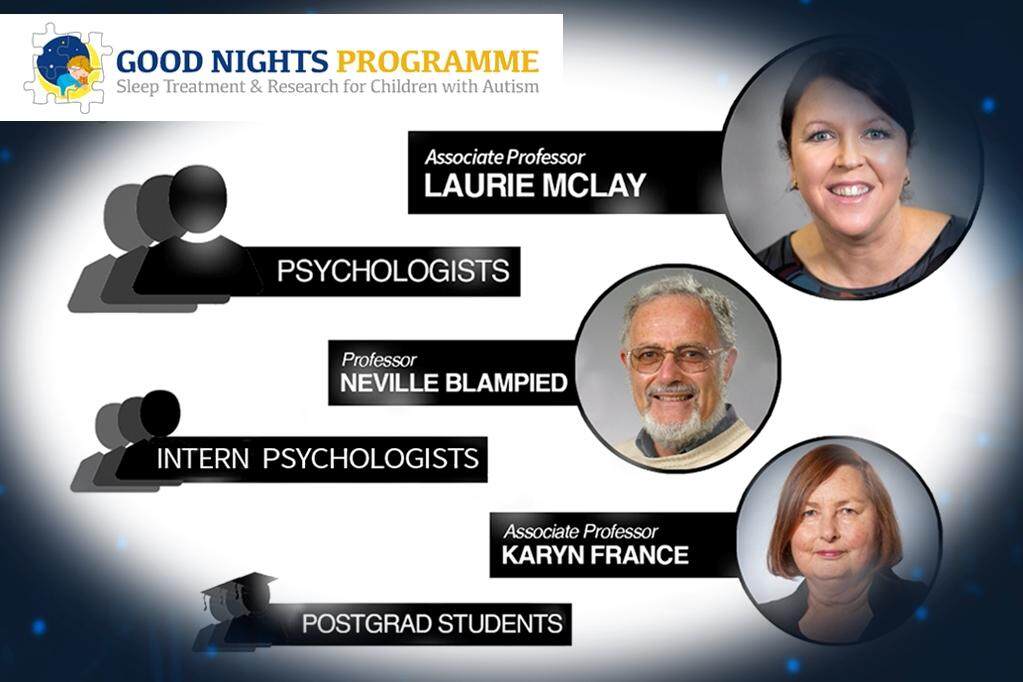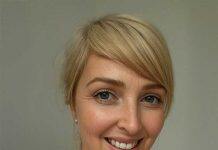University of Canterbury (UC) researchers have made a major step forward in treatment of sleep problems in children with Autism Spectrum Disorder (ASD), in new research recently published in the Journal of Autism and Developmental Disorders.


A high proportion of children with ASD have sleep problems such as difficulty with bedtime routines, problems settling to sleep, waking at night and waking too early.
“This is harmful to the child’s development in many areas of life and adds to the stress experienced by parents and siblings,” Associate Professor Laurie McLay, a principal investigator in the Good Nights Canterbury Autism and Sleep Project says.
“Before we began our research there was little guidance available to therapists about how to help families in this situation, especially those for whom the problem was severe.
“Our research has now shown that there are a range of strategies therapists can recommend to parents and children that are highly effective in helping children with ASD get a good night’s sleep, but they need to be tailored to each child”.
Funded by the Health Research Council (HRC) and the IHC Foundation, the UC research project involved over 40 families with a child aged 3 to 15 years who had received a clinical diagnosis of ASD, and had at least one severe sleep problem. Two-thirds of the children involved were boys.
The participating families came from throughout Aotearoa New Zealand, with those living outside Christchurch taking part by telehealth methods – a combination of email, phone and Zoom/Skype contact.
A nightly sleep diary kept by parents formed the primary source of information, complemented by videos of parent-child interaction and a range of psychological tests that helped researchers understand both the child and the severity of their ASD.
For UC Associate Professor Karyn France, another principal investigator, there was a distinctive feature of the team’s approach to therapy for the families.
“We carefully analysed of all the factors in the families’ circumstances, and the interactions between the child and his or her parents that might have contributed to the sleep problem. This allowed us to create an individualised therapy programme for each child, implemented by the parents with the guidance of the research therapists.”
The researchers focussed particularly on the role that devices, including smartphones and tablets, played in the sleep problem and took care to involve older children and adolescents in the design of their own therapy programme.
The results found that a majority of the children involved reduced the severity of their sleep problem(s), with a substantial number, immediately following their treatment, placed in the non-clinical severity range.
The benefits of treatment were maintained at both short-term and long-term follow-up sessions (at 4-6 weeks and again at 12-14 weeks after treatment), with almost all parents reported to be highly satisfied by the therapy, although some noted that it was sometimes effortful and time-consuming.
The researchers concluded that their strategy for developing individually tailored treatments created highly effective therapies and there was little evidence the initial severity of the child’s ASD altered the outcome.
Professor Neville Blampied, another key figure of the UC research team, was delighted with the study’s results. “The families receiving treatment by telehealth methods experienced the same overall benefits as those seen face-to-face, which is good news for families lacking direct access to specialist services.”
The UC team are continuing their research into children with ASD and in work funded by the Marsden Fund of the Royal Society of New Zealand, have extended the project to include those children with rare genetic neurodevelopmental disorders. The team welcome enquiries from parents interested in participating in either of these projects.
The published paper can be accessed at DOI 10.007/s10803-020-04548-7
McLay, L., France, K., Blampied, N., van Deurs, J., Hastie, B., Carnett, A., Woodford, E., Gibbs, R., & Lang, R. Function-based behavioral interventions for sleep problems in children and adolescents with autism: Summary of 41 clinical cases. Journal of Autism and Developmental Disorders. Published online 02 June, 2020.Hunter, J., Knight, Js10803-020-04548-7DOI: 10.1007/s10803-020-04548-7 [f
For more information about this research, including comments by participating parents, see: https://www.canterbury.ac.nz/education-and-health/research/good-nights-programme/







































